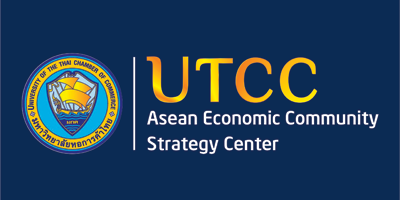Philippines: The future is in agribusiness
The global unemployment rate will increase to 5.8 percent representing 3.4 million people or a total of 201.1 million, according to the World Employment and Social Outlook-Trends 2017 report recently released by the International Labor Organization. This gloomy picture is attributed to the weak economic growth in many regions, in particular Sub-Saharan Africa, Latin America and the Caribbean, which are all still reeling from the effects of the 2008 economic meltdown that affected many countries.
However, projections for Asia Pacific are positive, with the report citing the Philippines’ and Indonesia’s significant employment growth. According to the Philippine Statistics Authority, the number of jobless Filipinos in 2016 has gone down to 2.4 million or 5.5 percent, lower than the 2.6 million or 6.3 percent jobless recorded in 2015. However, the underemployment rate continues to be in the double digits with 18.3 percent or 7.5 million Filipinos working part-time or employed in non-regular jobs.
Socioeconomic Planning Secretary Ernie Pernia had disclosed much earlier that the government is targeting a four to five percent unemployment rate by 2022, though he agreed that underemployment is of more concern because of the double digit rates. Pernia said that over 30 percent of those employed are still considered vulnerable, especially those working in the agriculture sector.
Members of the business delegation that accompanied Japanese Prime Minister Shinzo Abe during his recent two-day visit to the Philippines expressed interest in investment opportunities in the agribusiness sector — one of the five priority areas under the government’s comprehensive national industrial strategy program. This is definitely a positive development especially for Mindanao — dubbed as “the land of promise” and the “food basket of the Philippines” — whose agricultural potential has not been maximized despite its rich biodiversity, conducive climate and fertile soil.
Just recently, the Japan International Cooperation Agency extended a ¥4.9-billion loan for the development of Mindanao’s agriculture sector under a project called Harnessing Agribusiness Opportunities through Robust and Vibrant Entrepreneurship Supportive of Peaceful Transformation or Harvest which will act as a lending facility for agribusiness and related investments.
The project aims to help ordinary Mindanao farmers and concerned institutions develop and grow the agriculture sector which could generate more investments and job opportunities especially in conflict-affected areas. The Philippine Statistics Authority says agriculture, forestry and fishing account for over 60 percent of the economy in Mindanao, but conflicts have made many areas among the poorest in the country.
According to London-based industry intelligence provider ReportBuyer, projections for the agribusiness sector in the Philippines is positive in the long term given the country’s potential for expansion into new sectors such as palm oil. The outlook for sugar mills as well as the livestock sector is also expected to show healthy growth rates, the report said. ReportBuyer also noted the government’s initiatives to support rice and sugar production, although backyard farming and infrastructure problems continue to hamper growth of the sector which remains “uncompetitive.”
Experts have long been saying that agriculture is a key factor in making economic growth inclusive and in reducing poverty incidence in the country. One of those who has been stressing the need to pursue large-scale activities in the agribusiness sector is businessman Manny Pangilinan, saying as early as five years ago that government has to focus on the sector, noting its very small contribution to the country’s gross domestic product.
First Pacific, in particular, has always been keen on investing in the agri sector most especially in the production of cash crops like banana and sugar as well as coffee, rubber and palm oil. Even Malaysia has indicated interest in agribusiness investments, specifically in palm oil.
Secretary Pernia, who is also director general of the National Economic and Development Authority or NEDA, said the government is looking at policy changes on agriculture and rural development that would allow for large-scale commercial farming in order to improve productivity and enhance profitability even for ordinary farmers. Pernia previously noted that the agriculture sector continues to lag despite the country’s consistent economic growth.
Productivity has not been maximized because of small land parcels awarded to beneficiaries of the agrarian reform program with minimal production capacity. The NEDA chief says the small parcels should be consolidated into plantation-size areas for cultivation in order to achieve “economies of scale” to produce enough rice and other cash crops. Consolidating the small parcels would attract more investors who have the financial muscle to buy modern machinery and employ the latest farming techniques — instead of the traditional plow and carabao method employed by small, struggling farmers — for increased productivity.
A report by the Philippines Institute of Development Studies showed that poverty, especially in the rural areas, is related to low farming productivity and poor agricultural diversification. This is the same view shared by several business organizations that believe an efficient agricultural sector with improved productivity, through increased investments and industrialization, would significantly contribute to poverty alleviation efforts and help residents in poor rural communities improve their quality of life.
Spy tidbit
A source privy to the 45-minute meeting between President Duterte and US Ambassador Sung Kim at the Presidential Guest House in Davao City last Sunday told Spy Bits the atmosphere was “very cordial and even jovial in a way.” It was, as the source described, a “formal meeting that was not very formal.” Also in the meeting with Ambassador Kim and officials of the US Embassy were Finance Secretary Sonny Dominguez, Defense Secretary Del Lorenzana and Foreign Secretary Jun Yasay.
The cordial meeting is indicative of a continuing relationship between the Philippines and the US which is ready to go into full gear once the new administration, under soon-to-be inaugurated president-elect Donald Trump takes over. The meeting certainly presents a great opportunity to improve the relationship from where it was (or make that “is”).
Source: http://beta.philstar.com/business/2017/01/17/1662964/future-agribusiness#dYdQlcBkDfEMQiEk.99


 Thailand
Thailand




